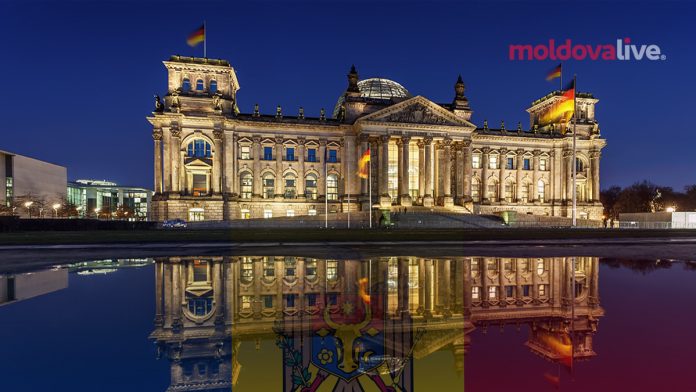During the 75th session of the German legislature, the motion on supporting the Republic of Moldova, submitted by the parliamentary factions of the governing coalition SPD, the Green Party, and the FDP, was voted with a majority.
During the vote, the federal minister of foreign affairs Annalena Baerbock, and the ambassador of the Republic of Moldova in Berlin, Aureliu Ciocoi, participated in the meeting.
The Foreign Affairs Committee previously recommended this resolution, with the SPD, Greens, FDP, and CDU/CSU factions voting for the motion. AfD voted against and Die Linke abstained.
“Since Russia’s brutal invasion of Ukraine on February 24, 2022, which is contrary to international law and the imperialist statements of the Russian leadership regarding Russia’s neighboring countries, the Republic of Moldova sees its security threatened.” At the same time, since the election of Maia Sandu as president in 2020, “The country has embarked on a brave and ambitious course of reforms and rapprochement with the European Union,” it is stated in the resolution.
FOR THE MOST IMPORTANT NEWS, FOLLOW US ON FACEBOOK!
In addition to continuing to support our country’s accession to the EU, the German MPs urge the government in Berlin to advocate at the European level for the reform of the accession process and to provide the Republic of Moldova with direct budgetary support, with a special purpose, to overcome the immediate challenges of our country.
Other requests are aimed at reducing energy dependence on Russia, expanding transport infrastructure, mobilizing investments, including within the European Bank for Reconstruction and Development, as well as providing assistance to refugees from Moldova, especially with regard to the protection of women and children.
At the same time, the German federal government is called to plead for the continuation of the dialogue in order to ensure the territorial integrity of the Republic of Moldova with regard to the Transnistrian region and, in this context, to support the OSCE mission in the Republic of Moldova, as well as direct contacts between the government in Chisinau and the Transnistrian region of the country.


